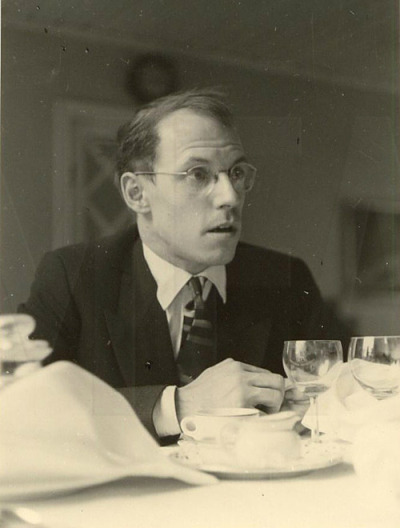
Michel Foucault.

“But here we should pay careful attention: if it is obvious that the theory of the weakest link guided Lenin in his theory of the revolutionary party (it was to be faultlessly united in consciousness and organisation to avoid adverse exposure and to destroy the enemy), it was also the inspiration for his reflections on the revolution itself. How was this revolution possible in Russia, why was it victorious there? It was possible in Russia for a reason that went beyond Russia: because with the unleashing of imperialist war humanity entered into an objectively revolutionary situation. Imperialism tore off the ‘peaceful’ mask of the old capitalism. The concentration of industrial monopolies, their subordination to financial monopolies, had increased the exploitation of the workers and of the colonies. Competition between the monopolies made war inevitable. But this same war, which dragged vast masses, even colonial peoples from whom troops were drawn, into limitless suffering, drove its cannon-fodder not only into massacres, but also into history. Everywhere the experience, the horrors of war, were a revelation and confirmation of a whole century’s protest against capitalist exploitation; a focusing-point, too, for hand in hand with this shattering exposure went the effective means of action. But though this effect was felt throughout the greater part of the popular masses of Europe (revolution in Germany and Hungary, mutinies and mass strikes in France and Italy, the Turin soviets), only in Russia, precisely the ‘most backward’ country in Europe, did it produce a triumphant revolution. Why this paradoxical exception? For this basic reason: in the ‘system of imperialist states’ Russia represented the weakest point. The Great War had, of course, precipitated and aggravated this weakness, but it had not by itself created it. Already, even in defeat, the 1905 Revolution had demonstrated and measured the weakness of Tsarist Russia. This weakness was the product of this special feature: the accumulation and exacerbation of all the historical contradictions then possible in a single State. Contradictions of a regime of feudal exploitation at the dawn of the twentieth century, attempting ever more ferociously amidst mounting threats to rule, with the aid of a deceitful priesthood, over an enormous mass of ‘ignorant’ peasants (circumstances which dictated a singular association of the peasants’ revolt with the workers’ revolution). Contradictions of large-scale capitalist and imperialist exploitation in the major cities and their suburbs, in the mining regions, oil-fields, etc. Contradictions of colonial exploitation and wars imposed on whole peoples. A gigantic contradiction between the stage of development of capitalist methods of production (particularly in respect to proletarian concentration: the largest factory in the world at the time was the Putilov works at Petrograd, with 40,000 workers and auxiliaries) and the medieval state of the countryside. The exacerbation of class struggles throughout the country, not only between exploiter and exploited, but even within the ruling classes themselves (the great feudal proprietors supporting autocratic, militaristic police Tsarism; the lesser nobility involved in constant conspiracy; the big bourgeoisie and the liberal bourgeoisie opposed to the Tsar; the petty bourgeoisie oscillating between conformism and anarchistic ‘leftism’). The detailed course of events added other ‘exceptional’ circumstances, incomprehensible outside the ‘tangle’ of Russia’s internal and external contradictions. For example, the ‘advanced’ character of the Russian revolutionary elite, exiled by Tsarist repression; in exile it became ‘cultivated’, it absorbed the whole heritage of the political experience of the Western European working classes (above all, Marxism); this was particularly true of the formation of the Bolshevik Party, far ahead of any Western ‘socialist’ party in consciousness and organisation; the ‘dress rehearsal’ for the Revolution in 1905, which, in common with most serious crises, set class relations sharply into relief, crystallised them and made possible the ‘discovery’ of a new form of mass political organisation: the soviets. Last, but not the least remarkable, the unexpected ‘respite’ the exhausted imperialist nations allowed the Bolsheviks for them to make their ‘opening’ in history, the involuntary but effective support of the Anglo-French bourgeoisie, who, at the decisive moment, wishing to be rid of the Tsar, did everything to help the Revolution. In short, as precisely these details show, the privileged situation of Russia with respect to the possible revolution was a matter of an accumulation and exacerbation of historical contradictions that would have been incomprehensible in any country which was not, as Russia was, simultaneously at least a century behind the imperialist world, and at the peak of its development.”

…in a very exact sense, the bourgeoisie lives in the ideology of freedom the relation between it and its conditions of existence; that is, its real relation (the law of a liberal capitalist economy) but invested in an imaginary relation (all men are free, including the free labourers). Its…